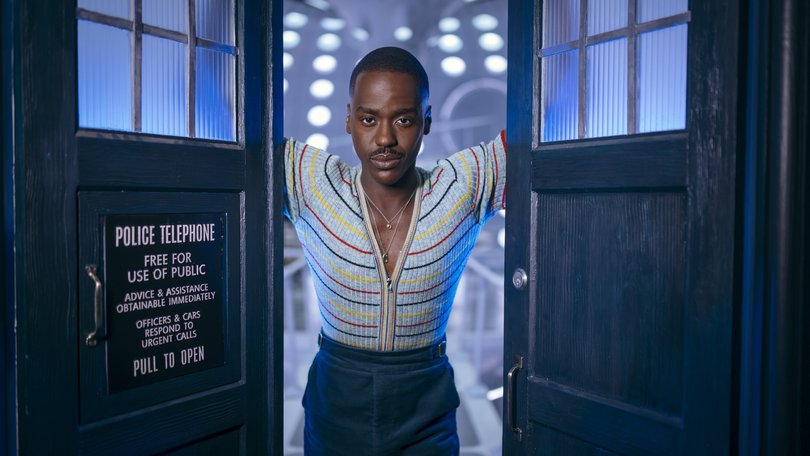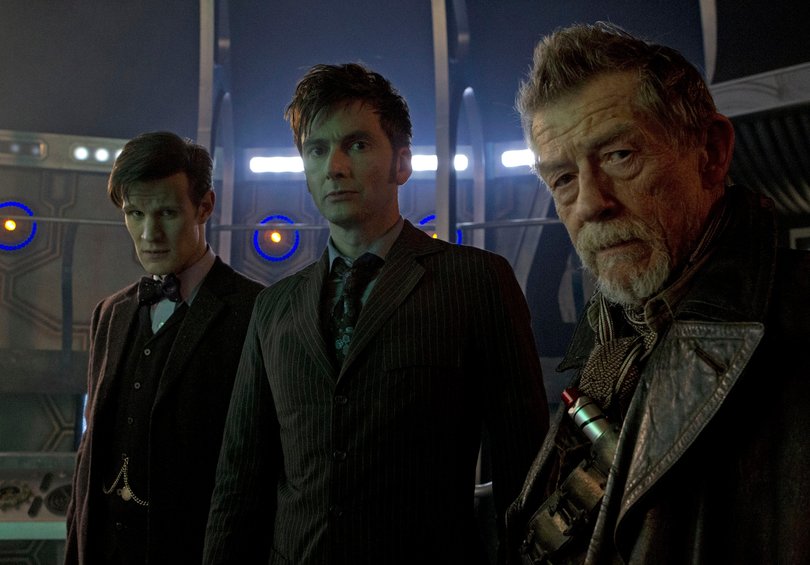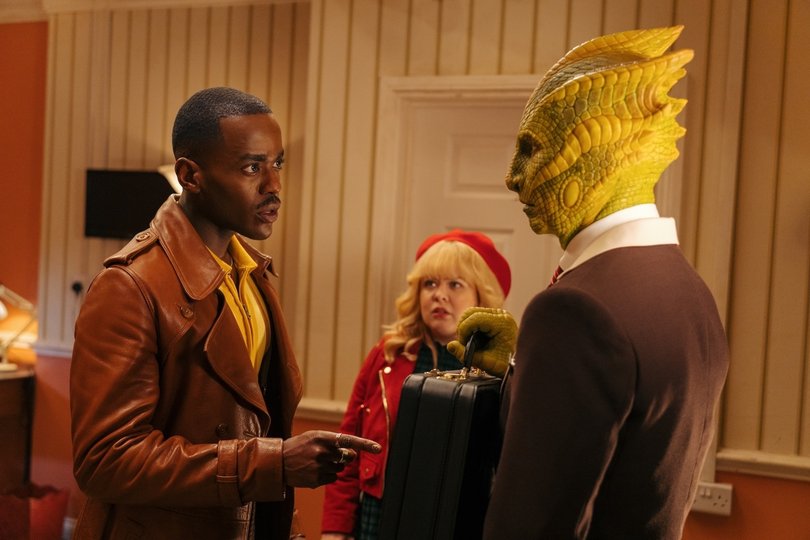Doctor Who future confirmed after Disney exits franchise deal
Fans had been left in limbo for months with speculation the show was about to go into extended hibernation. We finally know what’s going to happen next.

The future of Doctor Who looks a little clearer today after BBC and Disney confirmed it is ending its short-lived partnership.
The BBC will continue its stewardship of Doctor Who without the financing and global distribution deal that was in place for the past two seasons as well as the upcoming spin-off series The War Between the Land and the Sea.
The British broadcaster confirmed the show will return with a Christmas special in 2026, written by Russell T. Davies, who brought the show back in 2005 in its modern incarnation, and who again took charge of the franchise in 2023.
Sign up to The Nightly's newsletters.
Get the first look at the digital newspaper, curated daily stories and breaking headlines delivered to your inbox.
By continuing you agree to our Terms and Privacy Policy.Lindsay Salt, director of drama at the BBC, said in a statement, “We can assure fans, the Doctor is not going anywhere, and we will be announcing plans for the next series in due course, which will ensure the TARDIS remains at the heart of the BBC.”
The beloved sci-fi series had been in purgatory after it wrapped its most recent series in May, which also saw the exit of the Fifteenth Doctor, Ncuti Gatwa.

For months, rumours flew that Disney was headed for the door, which led some to speculate that Doctor Who could be rested for an extended period of time.
Davies had said in April, “I kind of know that the Doctor’s reached the status of, like, Robin Hood. Sometimes there might be a pause, and during that pause, the viewers of Newsround now will grow up a few years and start writing stories and they’ll bring it back.
“So, I have absolute faith that it will survive because I am living proof of it. And that’s what happens to good ideas. No good idea ever dies.”
Under the Disney deal, access to the series outside of the UK and Ireland was exclusive to the Disney+ streaming service.
Prior to that, Doctor Who had in Australia been on the ABC for 50 years. Even when the BBC moved all of its first-run programs from the ABC to Foxtel in 2014, there was a specific carve-out to keep Doctor Who on the free-to-air public broadcaster.
When queried if the ABC would be clawing back its rights to the show with the end of the Disney partnership, the network had nothing yet to share.
The Disney deal gave the series an injection of money which was reflected, at the very least, in the show’s visual effects with its bigger budget leading to bigger set-pieces. The budget was reported to be £10 million per episode.
There was no transparency from Disney in terms of the show’s performance among its international audience, but the one time it publicly revealed anything, it was to confirm that every episode of the 2024 season was in the top five shows globally every week they were released. Ratings on the BBC, however, declined over the past two seasons.

Gatwa joined the franchise in 2023 and played the Doctor for 16 episodes, two Christmas specials and one anniversary event. When he was announced as the next actor to step into the TARDIS, there was a lot of excitement over his casting as someone fresh.
A Scottish LGBTQI actor with Rwandan heritage, Gatwa had broken out in the Netflix comedy-drama Sex Education, stealing the spotlight with his irrepressible charisma and sensitive portrayal of a young man coming into his sexuality.
However, as is often the case when a non-white, non-heterosexual actor takes the reigns on iconic roles from existing intellectual property, Gatwa’s casting also triggered criticism from the socially regressive “anti-woke” brigade.
Doctor Who under Gatwa was never able to completely get clear air of those reactionary forces, especially those who also saw the partnership with Disney as some kind of capitulation to contemporary politics.
A Bridgerton-inspired episode in which Gatwa’s Doctor shares romantic subplot with a character played by American Broadway and TV star Jonathan Groff was the show’s first depiction of a sexually charged same-sex kiss involving its title hero.
The BBC received two complaints over the scene but they was dismissed by the BBC’s internal processes, and the episode is more broadly well regarded, and considered culturally significant.

At the end of Gatwa’s second season, the Doctor regenerated onscreen into a previous character from an earlier season, Rose, who was played by Billie Piper. A regeneration means a changing of the guard in Doctors, it’s how the show moves from one actor to another.
“I was tired and burnt out at the end of (season two). It was exhausting. But it was a magical time, magical,” Gatwa told The Telegraph of the decision to leave. “There was never an opportunity to recoup the energy – it’s just go, go, go. I was doing seven-day weeks for eight months, and I found it hard being away from home and family.”
Gatwa’s commitments on the final season of Sex Education and his first run on Doctor Who also overlapped, which saw the Doctor’s presence noticeably diminished in some episodes to accommodate shooting schedules.
Gatwa took over the role from Jodie Whittaker, who was the franchise’s first permanent female Doctor, and before that the role had been played by Peter Capaldi, Matt Smith, David Tennant and Christopher Eccleston in the 21st century.
Tennant returned to the series in the 2023 Christmas specials as a new incarnation of the character who could exist at the same time as a result of “bigeneration”.
Doctor Who’s original run was from 1963 to 1989 before it was revived in 2005. The series is considered one of the pillars of British pop culture.

